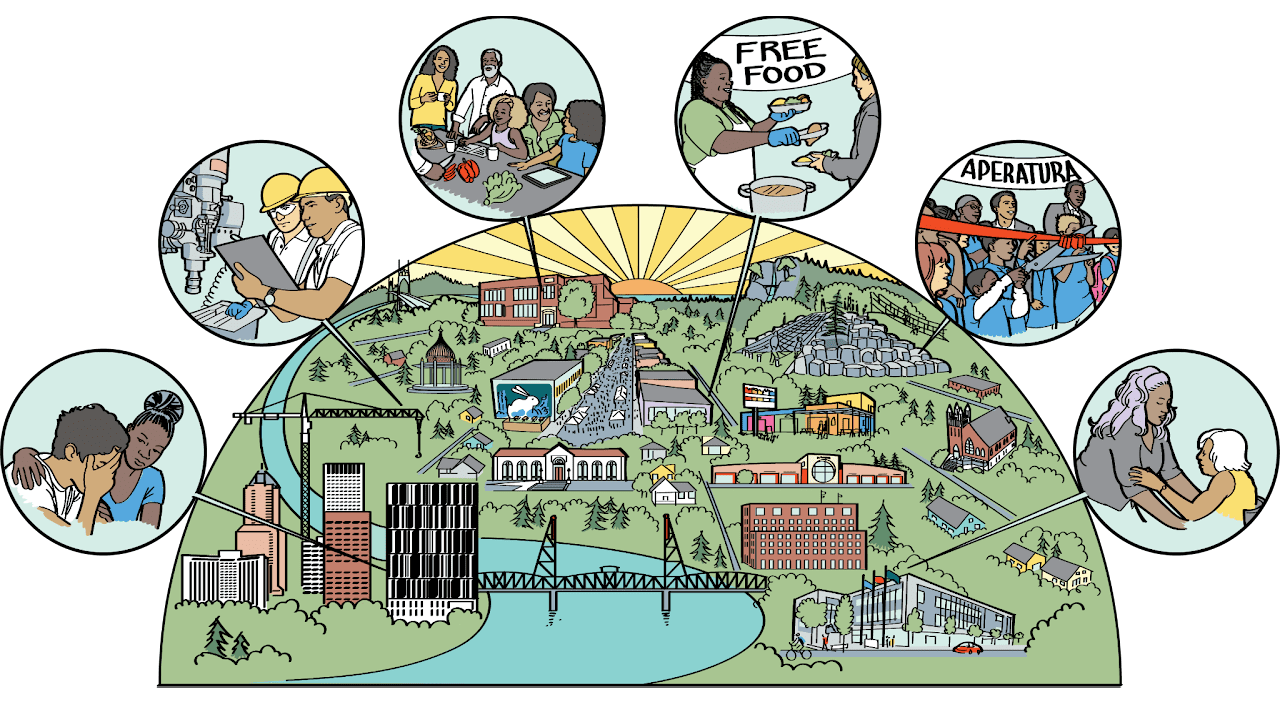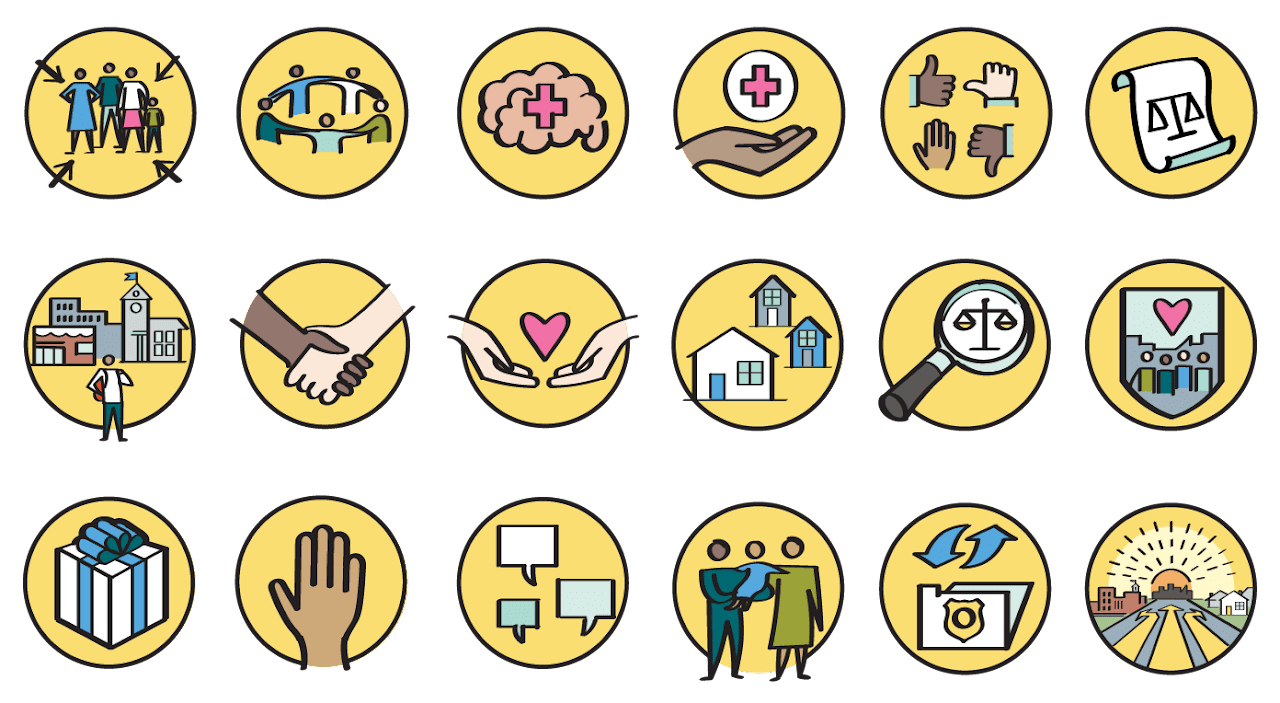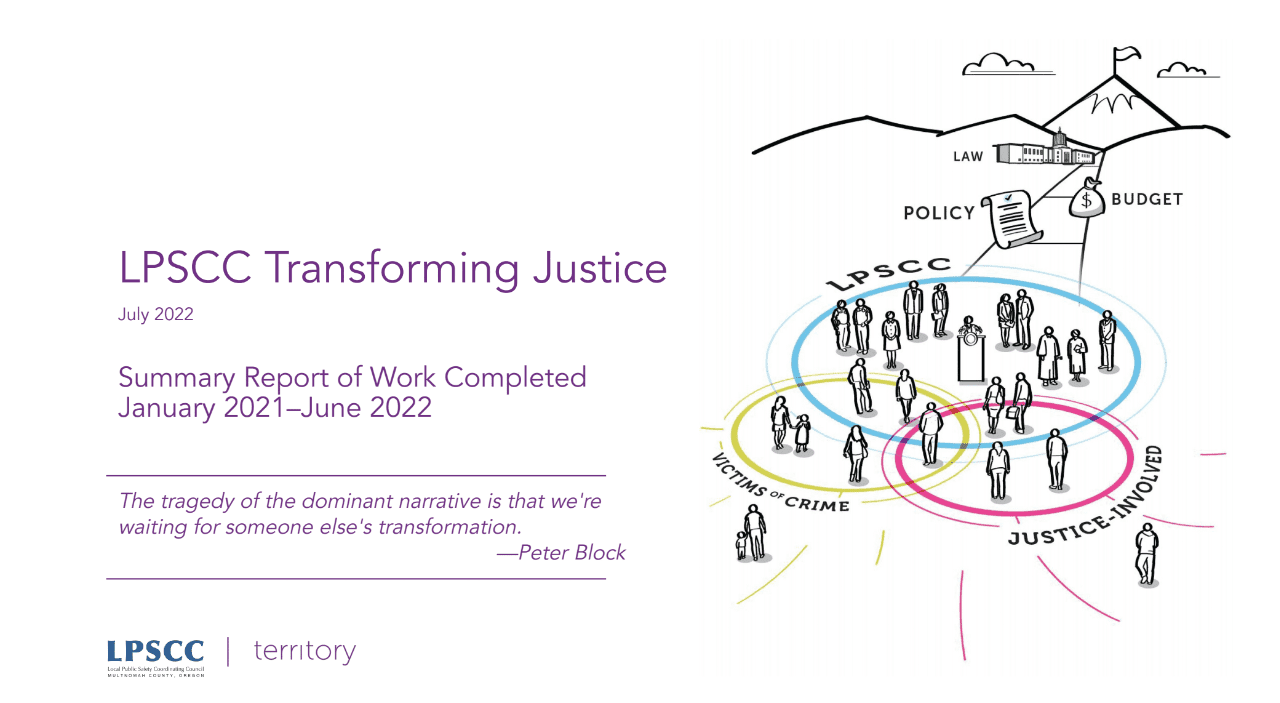A human-centered approach for criminal justice reform
The residents of Multnomah County built a vision of their criminal legal system worth fighting for.
“America’s long history of racial injustice is ingrained in our contemporary criminal justice system. As law enforcement and justice system leaders have acknowledged, our police and prisons have often deepened racial inequalities and undermined the trust of communities of color in public institutions (Western 2006; Wakefield and Wildeman 2013). In my own state of Oregon, our racist past continues its legacy by marginalizing communities of color.”
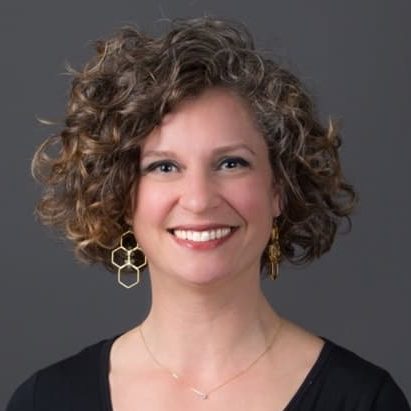
Abbey Stamp
Executive Director of LPSCC
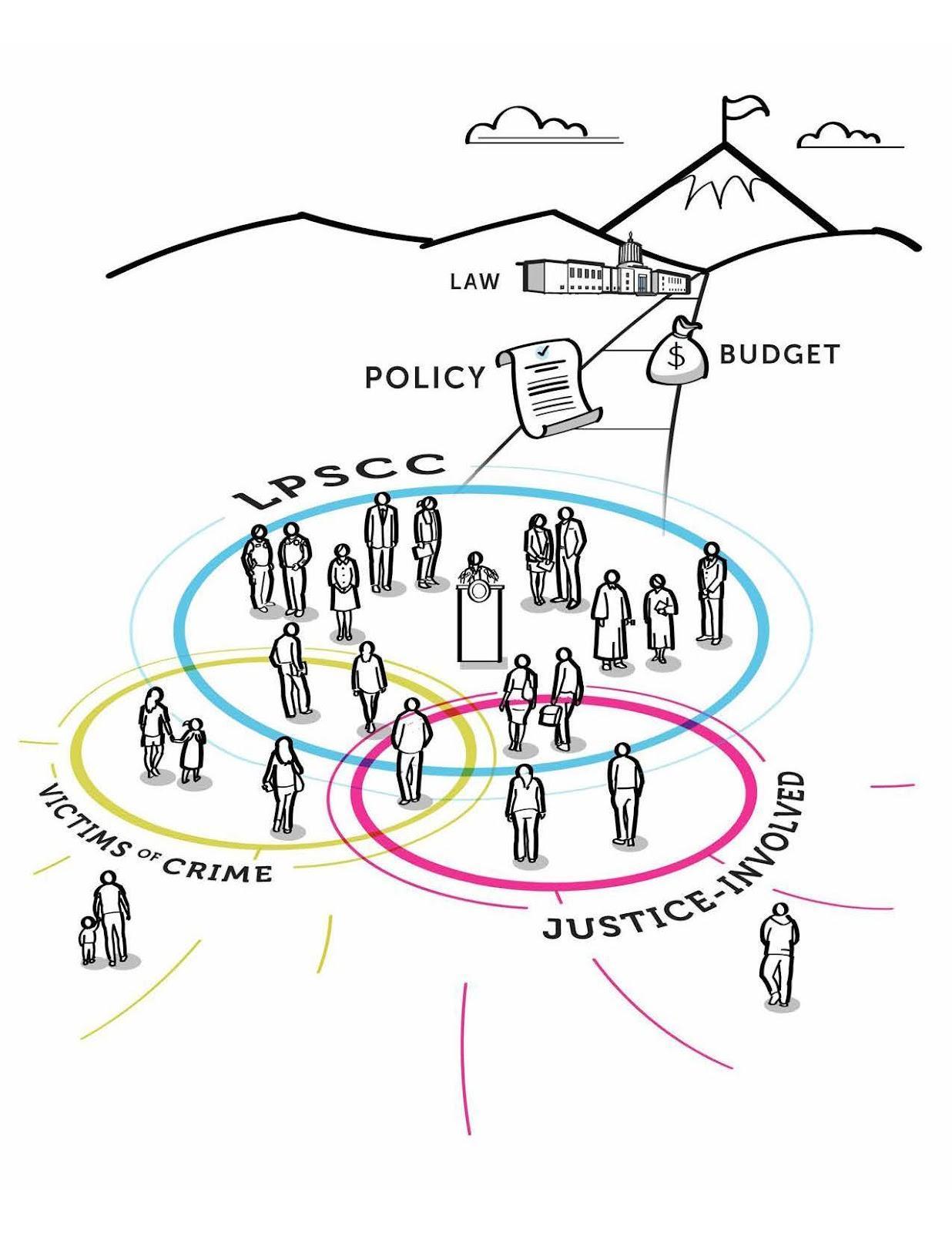
A vision for
EVERYONE
In 2020, Territory was awarded a contract with Multnomah County’s Local Public Safety Coordinating Council (LPSCC) to facilitate a process that resulted in a vision for the county’s criminal legal system and a set of core strategies designed to move the county toward that vision.
LPSCC was intentional about its search: they wanted a consultancy with expertise in human-centered design. It was critical that the vision be developed collaboratively by the people most adversely affected and the people with the most power to change the criminal legal system.
The power of
a great client
a great client
We love partnering with our clients, and clients who understand the value of co-creation and collaboration are like gold. Our clients on this project—folks in Multnomah County, especially LPSCC, and the folks who engaged with the project from outside of the county structure—were incredible collaborators, dedicated and invested to attaining success, open to new ideas, and ready and willing to roll up their sleeves and get the work done.
Consultants often get hired for their subject-matter expertise, and there are definitely times when it helps to have someone tell you exactly how to tackle your challenge. However, you, your team, your partners, and your customers are all experts in the work you do. When a team struggles to gain momentum, it usually isn’t because of inability; it’s because working together is hard.
This is where Territory comes in. We have very specific expertise built on three simple pillars: first, we are experts in ensuring that the right humans are centered and engaged in the work; second, we are experts at using visual tools to simplify, clarify, and inspire the work; and third, we are experts in facilitating groups so they can perform at their highest capability.
This is where Territory comes in. We have very specific expertise built on three simple pillars: first, we are experts in ensuring that the right humans are centered and engaged in the work; second, we are experts at using visual tools to simplify, clarify, and inspire the work; and third, we are experts in facilitating groups so they can perform at their highest capability.
The
WORK
This work advanced
on three major fronts
on three major fronts
1.
We created a working group made up of 11 residents of Multnomah County—some with lived experience in the criminal legal system, others with experience working within that system—and began regular weekly meetings designed to tackle this immense challenge. This working group carried the bulk of the work: designing research questions, sifting through research results, and ultimately building a recommended vision and core strategies.

2.
We convened a steering committee designed to have broad representation across the criminal legal system—both inside and outside of it—that met as needed to review the work group’s recommendations, make suggestions for change, exert power and pressure where necessary to unlock change, and ultimately to approve the final vision and core strategies.
The steering committee used our consensus decision model tool
3.
We launched a significant research project including interviews, focus groups, and surveys, designed to give a voice to residents of Multnomah County—and especially to folks most adversely affected by the criminal legal system. The results of this research were centered throughout the project. The working group, especially, let these community voices lead the work.
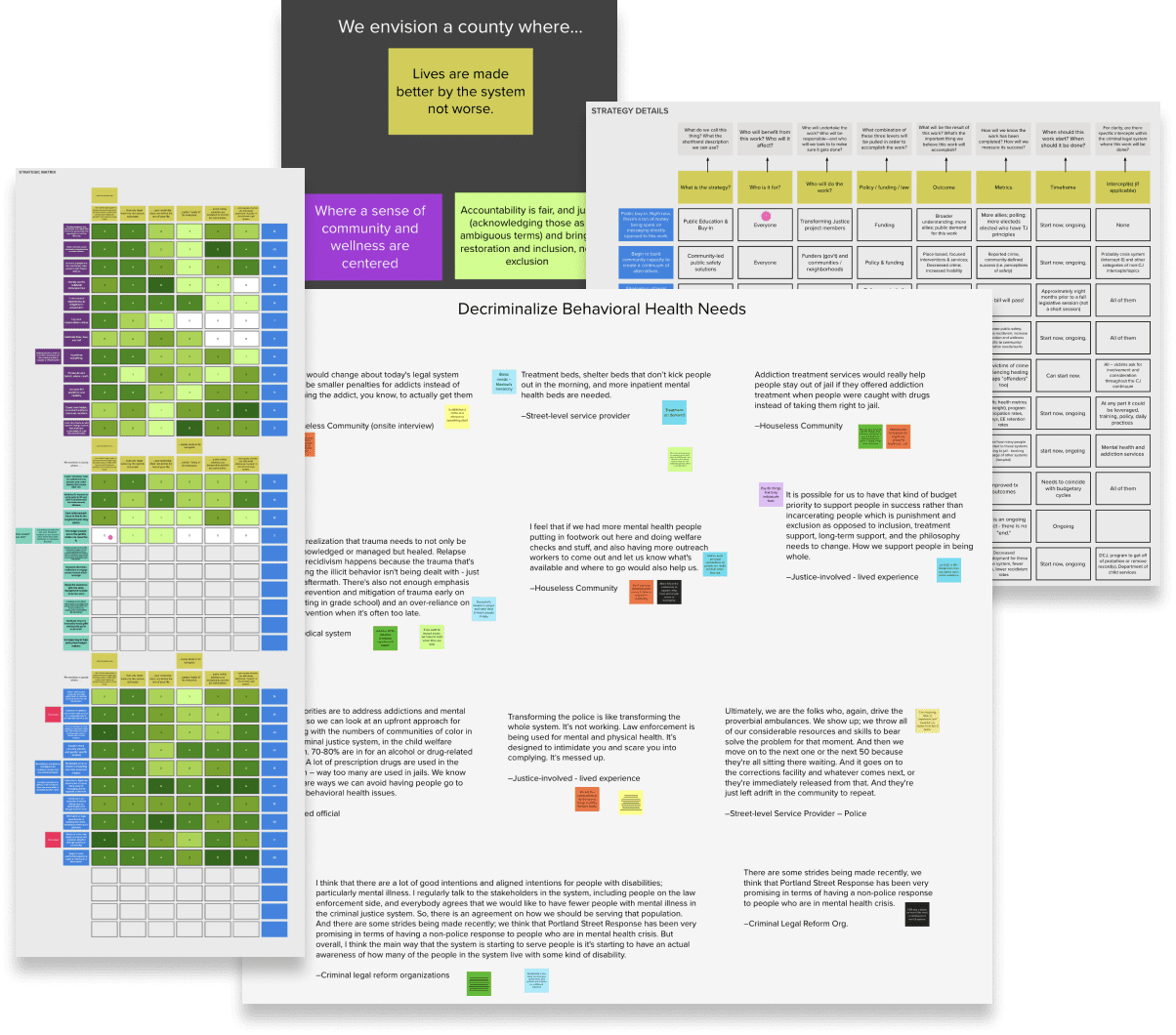
Visual tools to
enhance the process
enhance the process
In addition to research and facilitation, visual thinking and visual tools were central to the process we used to work our way toward the finished vision. These visuals are purposefully simple—often hand-sketched—on purpose. Some examples include:
A simple and clear process flow diagram for a consensus-based approval process we co-created for the Steering Committee
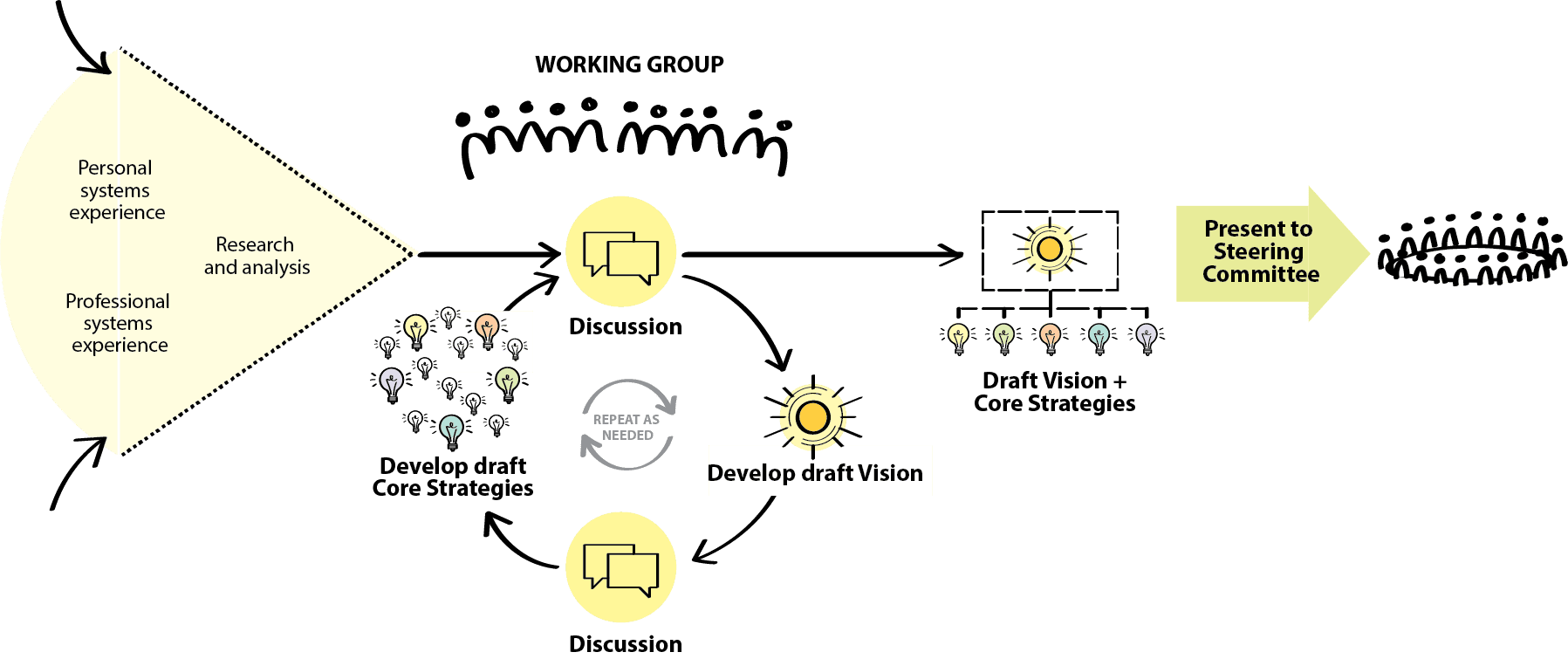
The use of icons to illustrate important values and principles throughout the process
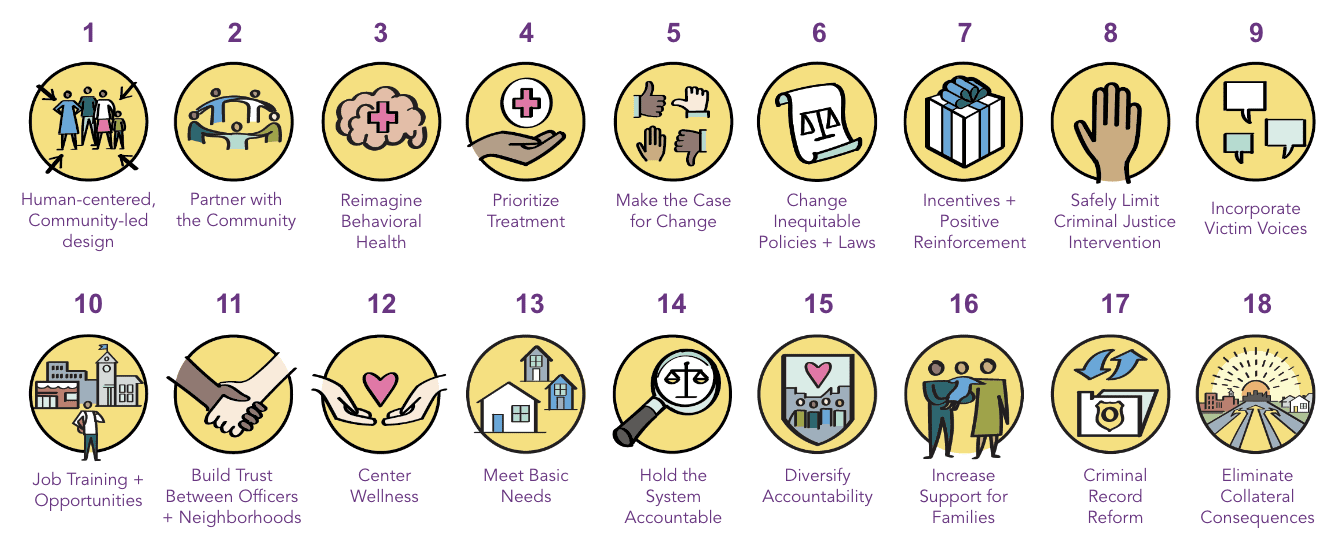
A “you are here” graphic that we used throughout the process to make sure stakeholders understood our progress toward a vision

The
RESULT
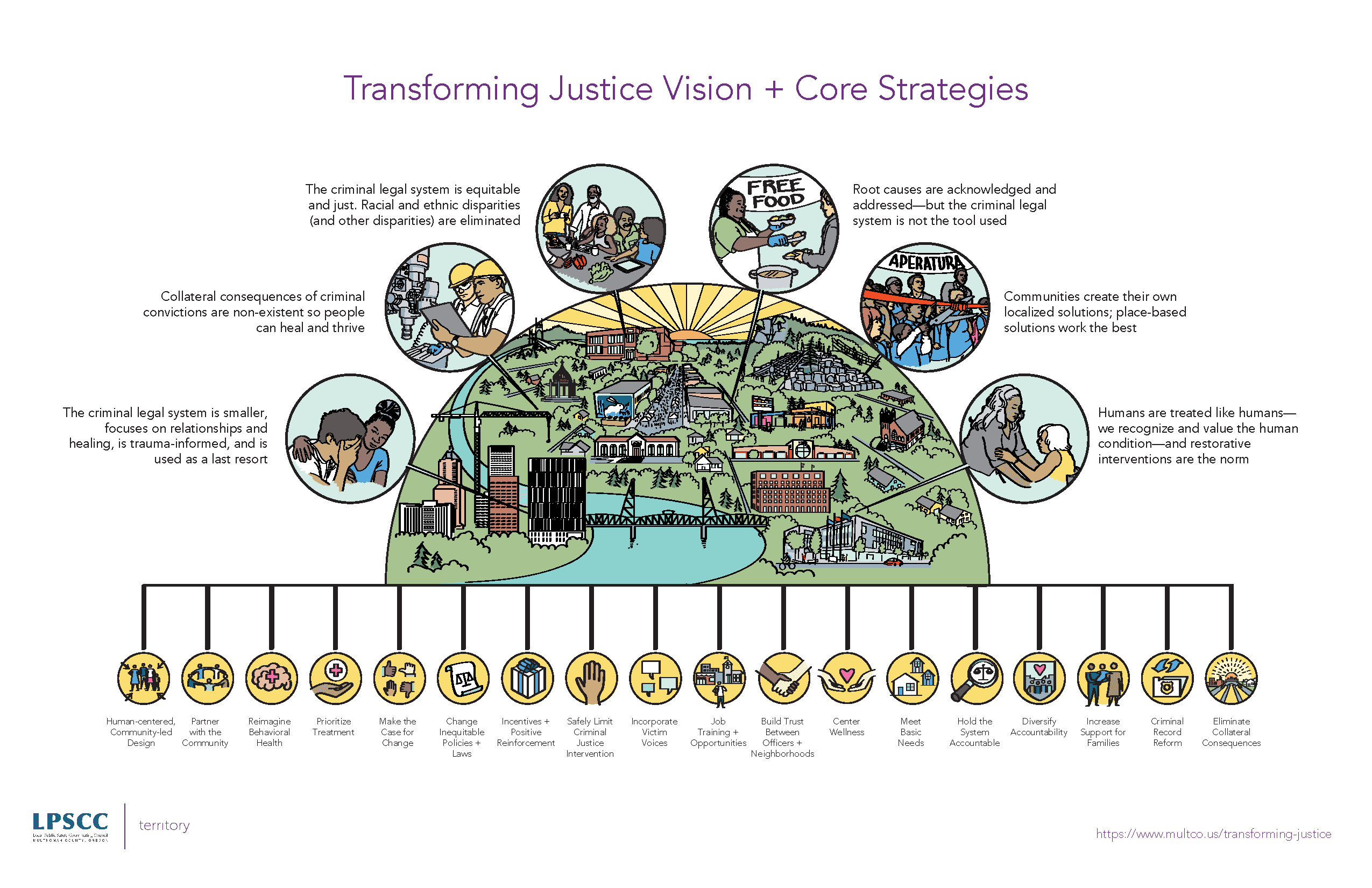
“This needs to be on every person’s front door, laptop, everywhere…”
Babak Zolfaghari
Working Group member
“Everyone is gobsmacked at how beautiful it is.”
Abbey Stamp
Executive Director of LPSCC
We are immensely proud of the work we facilitated on this project. The resulting document consists of 6 separate vision statements and 18 core strategies. Territory illustrated the vision statements with localized vignettes, created a montage of important Multnomah County landmarks, and built custom icons for each of the 18 core strategies. Work to implement the core strategies and to aim together for the vision statements is ongoing.


